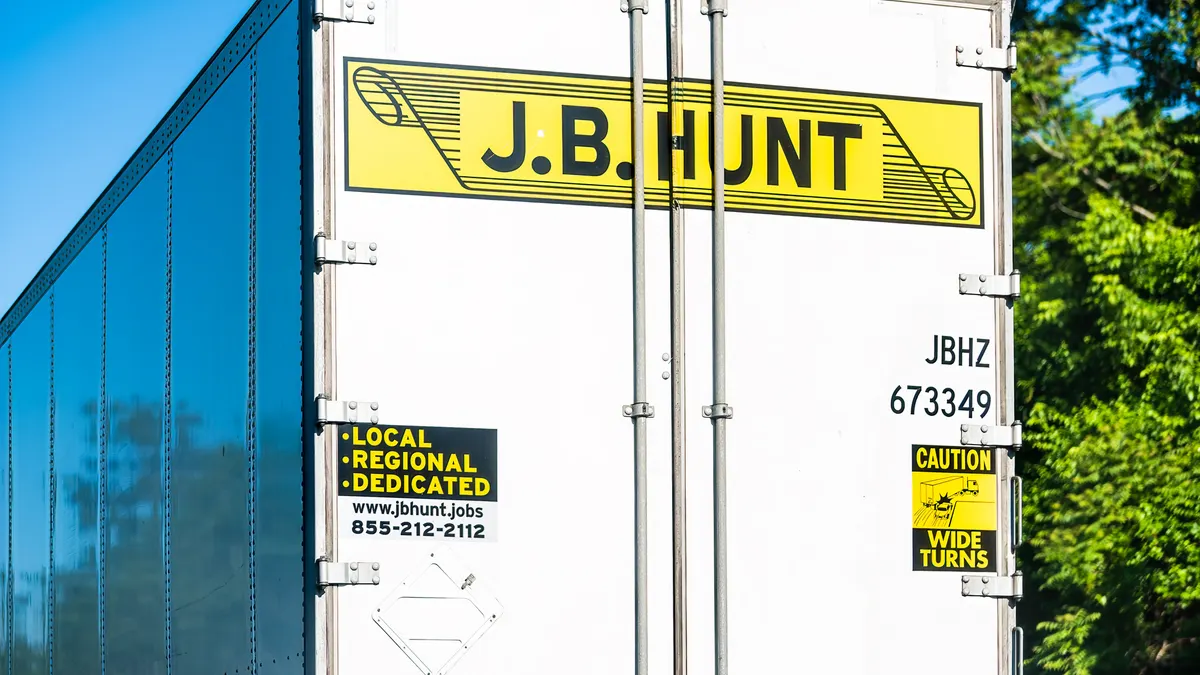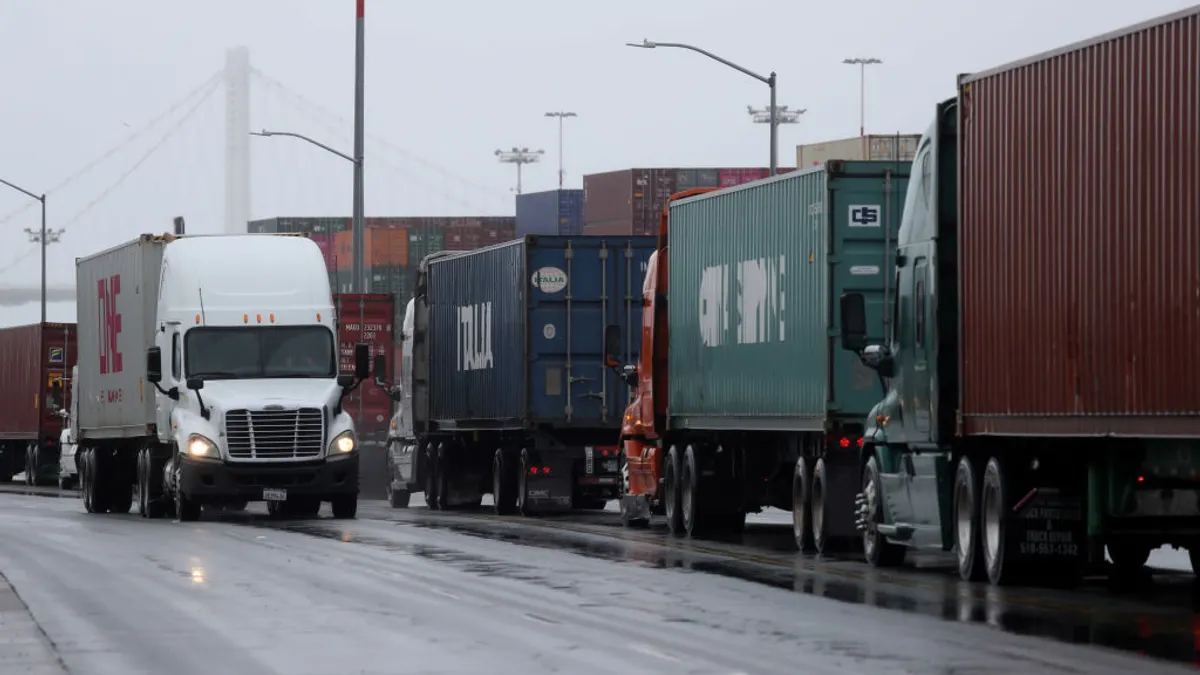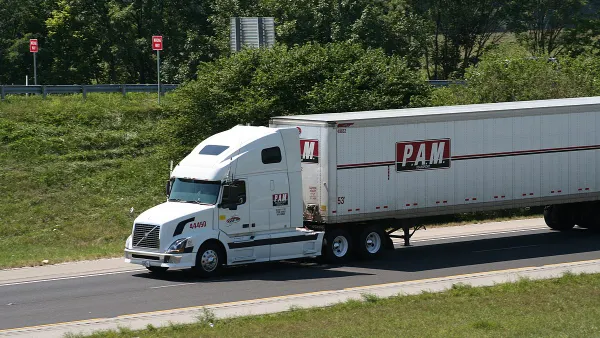Dive Brief:
- Schneider National’s Q3 income from operations fell 18% year over year to $35.3 million, the carrier reported on Oct. 30.
- The result aligns with those of other carriers, including Forward Air, TFI and Old Dominion Freight Line. Like Schneider, they cited the ongoing weak freight market for faltering profits. During a call with analysts, CEO Mark Rourke said soft business conditions are “likely to persist into the balance of the year.”
- However, he noted there are signs of better times ahead. “Though this down cycle has been extended, several new dynamics have been introduced over the last few months that are definitive catalysts for the removal of excess capacity after several years of expecting, but not seeing more significant supply rationalization,” Rourke said on the call.
Dive Insight:
What may help the industry and reduce overcapacity are federal policy changes regarding ELP enforcement, non-domiciled CLD identification requirements and trucking driver visa restrictions, Rourke said.
“But importantly, it also reflects self-regulation driven by the mere threat of enforcement,” he said.
Another factor that may benefit the industry is the increase in carrier bankruptcies, he said. Additionally, Class 8 truck production numbers appear to be dropping below traditional replacement levels and could accelerate further given the current tariff environment, Rourke said.
While also monitoring market forces, Rourke said the company is focused on revenue strategies and seeking ways to lower costs.
A Q3 bright spot for the carrier was its truckload segment, which reported revenues of $624.5 million, a 17% YoY increase. Schneider National credited the gain to a 22% increase in dedicated freight volume from Cowan Systems, which the company acquired in November 2024.
EVP and CFO Darrell Campbell stated that the carrier has the bandwidth to meet new demand in the dedicated freight segment by leveraging its productivity initiatives and moving resources away from lower-performing operations.
In another cost-savings move, Schneider said it is incorporating AI into its operations to boost efficiency. Rourke noted that in some instances, the company has “experienced 50% to 60%” productivity improvement. He said the company’s logistics and brokerage businesses have proven to be effective test beds for the technology.
“So there's a lot of leverage and operating leverage in our cost structure here, and increasingly, we'll be looking to leverage that further,” Rourke said.













